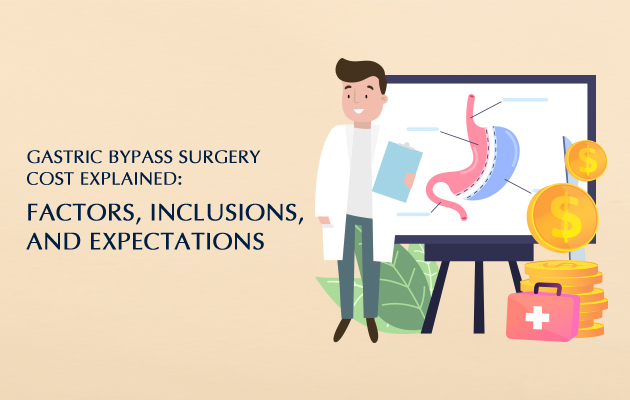Gastric sleeve surgery has become one of the most popular and effective weight loss procedures in recent years. If you’ve been struggling with obesity or related health concerns, this surgery could be a life-changing step towards better health, increased mobility, and greater confidence.
But one of the most common questions people ask before considering the procedure is, "How much weight will you lose after gastric sleeve surgery?"
There’s no one-size-fits-all answer. Weight loss after gastric sleeve surgery varies based on several factors. Still, knowing the average monthly weight loss, the typical gastric sleeve weight loss timeline, and realistic expectations can help you plan better and make informed choices.
In this blog, we’ll take a closer look at the average weight loss expectations, monthly progress, and the typical gastric sleeve weight loss timeline, especially if you’re considering gastric sleeve surgery in Melbourne with a qualified surgeon, Dr. Niruben Rajasangram.
What Is Gastric Sleeve Surgery?
Gastric sleeve surgery, also known as sleeve gastrectomy, is a type of bariatric surgery that involves removing approximately 75-80% of the stomach. The remaining stomach is reshaped into a narrow sleeve-like structure, which limits how much food you can eat and helps reduce hunger by lowering the levels of hunger hormones like ghrelin.
This procedure is minimally invasive, performed laparoscopically, and doesn’t involve rerouting the intestines, which makes it less complex than some other types of weight loss surgery.
The amount of weight you lose after gastric sleeve surgery can vary based on your starting weight, age, gender, metabolism, activity level, and how closely you follow your post-surgery care plan.
On average, patients lose about 60% to 70% of their excess weight within 12 to 18 months after the procedure.
Example:
If you are 120 kilograms and your goal weight is 70 kilograms, you have 50 kilograms of excess weight. Losing 60% of that means a 30-kilogram weight loss over a year to 18 months.
Gastric Sleeve Weight Loss Timeline
Understanding the typical gastric sleeve weight loss timeline can help you set realistic goals and track your progress. Here's a month-by-month breakdown of what many patients experience after surgery:
Month 1–3: Rapid Initial Weight Loss
-
Average monthly weight loss after gastric sleeve: 6–10 kg
-
This is when weight loss is the most significant.
-
Your appetite is significantly reduced, and your calorie intake is minimal as your body adjusts to its new stomach size.
-
You’ll mostly be on a liquid and soft food diet during this stage.
Month 4–6: Continued Steady Loss
-
Weight loss slows slightly but remains consistent.
-
You’ll likely lose an additional 4–6 kg per month.
-
You’ll reintroduce more solid foods and develop long-term healthy eating habits.
-
Regular exercise becomes increasingly important for continued success.
Month 7–12: Slower but Steady Progress
-
Your body starts to stabilise, and weight loss slows further to around 2–4 kg per month.
-
You may reach about 50–60% of your excess weight loss goal by this time.
Month 12–18: Reaching the Goal
-
By the 18-month mark, most patients will have lost 60–70% of their excess weight.
-
After this stage, weight loss may plateau, but ongoing lifestyle changes will help you maintain or lose a little more over time.
What Factors Influence Weight Loss After Surgery?
While the surgery itself is highly effective, your results will also depend on:
1. Dietary Habits
Following the nutrition plan provided by your dietitian is crucial. Avoiding high-calorie and processed foods will help maximise your weight loss.
2. Exercise Routine
Regular physical activity helps burn calories, maintain muscle mass, and boost your metabolism. Even walking daily can make a big difference.
For a more detailed guide on staying active after weight loss surgery, check out our Everything You Need To Know About Exercising After Gastric Sleeve
3. Mental and Emotional Support
Weight loss journeys can be emotionally challenging. Seeking support from a psychologist, a habits coach, a dietitian, or joining a support group can help you stay motivated and focused.
4. Follow-Up Care
Attending regular follow-ups with your surgeon or care team ensures any concerns are addressed early and that you’re progressing as expected.
Weight Loss Expectations: Realistic vs Unrealistic
It’s important to understand that gastric sleeve surgery is not a quick fix—it’s a procedure that helps support long-term weight loss when combined with lifestyle changes.
Here’s what to expect:
|
Time After Surgery |
Average % of Excess Weight Lost |
|
3 months |
20–25% |
|
6 months |
35–45% |
|
12 months |
50–60% |
|
18 months |
60–70% |
Some patients may lose more or less than these averages, and that’s perfectly okay. Your journey is unique, and success should be measured by improvements in your health, confidence, and quality of life, not just the number on the scale.
What Happens If You Don’t Lose Enough Weight?
In some cases, weight loss may decelerate or stabilise sooner than anticipated. This could be due to:
-
Not following dietary recommendations
-
Low physical activity levels
-
Underlying medical conditions
-
Emotional eating or lack of support
If this occurs, it’s important not to panic. Reach out to your care team to reassess your nutrition and exercise plan. Sometimes small adjustments can make a big difference.
Maintaining Weight Loss After Gastric Sleeve
While achieving weight loss is a significant milestone, maintaining it requires ongoing commitment and consistency. Here are some tips:
-
Follow the post-op diet strictly during each recovery phase.
-
Avoid grazing or snacking between meals.
-
Get enough protein to maintain muscle and feel full.
-
Stay hydrated, but don’t drink fluids with meals.
-
Exercise regularly, even if it’s just walking initially.
-
Attend follow-up appointments and stay in touch with your bariatric care team.
-
Address emotional eating with counselling or support groups, if needed.
Gastric Sleeve Surgery in Melbourne with Dr. Niruben Rajasangram
If you are looking for gastric sleeve surgery in Melbourne, Dr. Niruben Rajasangram offers personalised care, years of surgical expertise, and a compassionate approach to every patient’s journey.
Dr. Niruben and his team provide:
-
Detailed pre-operative assessment
-
Nutrition and lifestyle coaching
-
Safe, minimally invasive procedures
-
Ongoing post-operative support and follow-ups
Dr. Niruben’s goal is not just weight loss but helping you regain your health and confidence safely. Read more about what to expect in A Closer Look at Gastric Sleeve Surgery with Dr. Niruben Rajasangram.
Take Away
So, how much weight can you expect to lose after gastric sleeve surgery? While results vary based on several factors, most patients typically lose around 60–70% of their excess weight within 12 to 18 months, which for many equates to approximately 25–35 kg or more.
Your journey may come with challenges, but with the right mindset, support, and guidance, the transformation can be life-changing, not only physically, but also emotionally and mentally.
If you’re considering gastric sleeve surgery in Melbourne, Dr. Niruben Rajasangram offers expert surgical care backed by a holistic, patient-centred approach. Take the first step towards a healthier you.
Contact Dr. Niruben Rajasangram’s clinic in Melbourne today to schedule your consultation and learn more about how gastric sleeve surgery can change your life.








